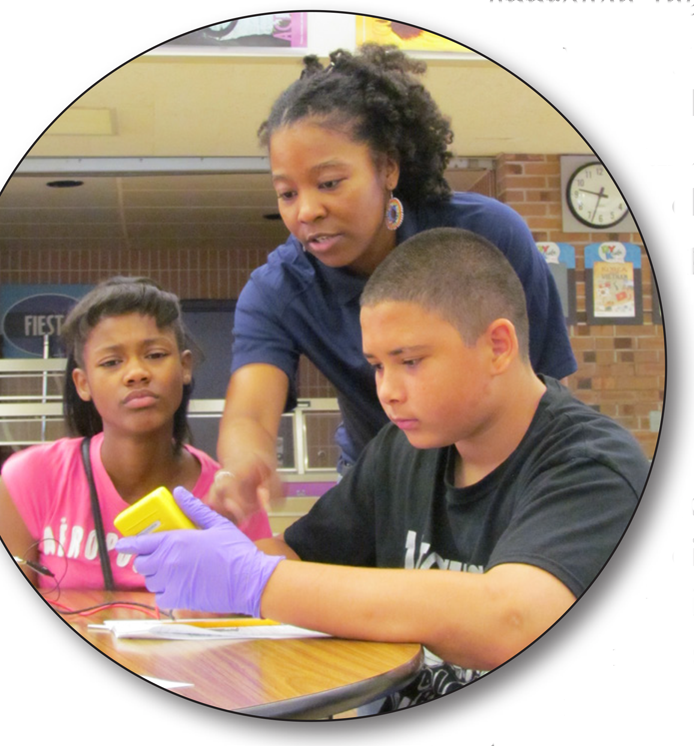One of the beauties of materials science lies in its interdisciplinary nature. Experts in individual domains of physics, chemistry, biology, engineering, and even computer science are major players in the bigger picture of materials. One such expert in the field of chemistry is Takiya Ahmed Foskey, who is currently a research scientist at DuPont's Transportation and Industrial Adhesives business and is in charge of designing epoxy-based structural adhesives for the automotive market. “I enjoy learning about customers’ needs and developing customized bonding solutions for new automobile designs,” said Takiya.
Prior to working at DuPont, Takiya was a research scientist at The Dow Chemical Company in Midland, Mich., for eight years. She highlighted that R&D in industry is very fast-paced compared to that in academia. “In addition, research projects in industry are assessed and prioritized according to their perceived long-term market value—very different parameters from academia. This leads to a very different set of pressures and a distinct research approach that aims to quickly establish the viability of a potential invention.”

Early on in college, Takiya realized that she excelled in chemistry and chose it as her major. “However, my passion for chemistry did not develop until I began doing research. As an undergraduate researcher, I worked in an inorganic chemistry lab studying supported oxidation catalysts. I learned about the principles of green chemistry and the unique contributions chemists can make to the development of sustainable industrial processes and technology. I began to see a career in research as an opportunity to have a positive impact in my own community and communities around the world,” she said.
Takiya obtained her PhD in chemistry at the University of Oregon (UO), where she investigated water-soluble catalysts with David R. Tyler. Afterward, she was a National Science Foundation American Competitiveness in Chemistry Postdoctoral Fellow with the Center for Enabling New Technologies through Catalysis, researching biomass conversion with Karen Goldberg and D. Michael Heinekey at the University of Washington.
Takiya recently received the Materials Research Society (MRS) Impact Award, which honors outstanding individuals who have displayed excellence in areas of science communication, education, advancing diversity, mentoring, or community engagement, which reflect the Society's pursuit to advance materials science and technology to improve the quality of life. This was her first engagement with MRS, and she hopes to become an active member in the future.

“I began STEM education work in graduate school as a co-founding member of the UO Women in Graduate Sciences and became its first outreach chair. My first project involved creating and implementing a high-school outreach program aimed at exposing students to science careers and the benefits of higher education. After that, I was hooked. STEM outreach, specifically programs designed to broaden participation, became a regular and important part of my life's work,” she said.
During the last 15 years, Takiya has co-created a number of programs aimed at encouraging children and young adults, in particular those who are underrepresented and economically disadvantaged, to consider new possibilities for their lives and to become role models in the future. “I am most proud of the work I did alongside of the Midland Professional Chapter of the National Organization [for the Professional Advancement] of Black Chemists and Chemical Engineers (NOBCChE) promoting STEM education and careers in the Great Lakes Bay Region,” she said. As the president of this NOBCChE chapter, she engaged families, teachers, community leaders, and company executives to design unique supplemental STEM education opportunities for students at all levels in the academic pipeline. As a result, they were able to deliver academic programs, such as regional science bowls, summer science camps and science fairs, and community networking events that exposed children and their families to professionals and role models working in STEM fields. Through their efforts, they have impacted more than 150 local middle- and high-school students annually.
When she is not at DuPont or engaged in community outreach activities, Takiya loves spending time with her family—her husband and two children. She strongly encourages young people considering a career in STEM to think creatively about how their education and training may contribute positively to the world. “We are all most effective when we pursue our passions. Whatever you are passionate about—cars, genetics, robots, or even hair products—a career in science will provide a path to make a contribution to our collective advancement and understanding.”



